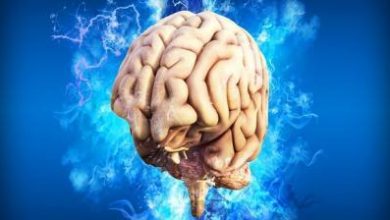Borderline Personality Disorder Treatment

A borderline personality disorder or BPD is a mysterious mental health condition that is often misunderstood and isn’t discussed as frequently as other conditions in the community. Signs and symptoms of BPD are often put in the same category as bipolar disorders. While bipolar disorders are episodic and their symptoms are drawn out for longer periods, the signs and symptoms of BPD are quite harsh, erratic, and occur for a short period. The biggest trigger for BPD is relational issues. The symptoms are often seen in intimate relationships, which result in negative interactions with people suffering from BPD. In this blog, we look into what borderline personality disorder is and its diagnosis and cure.
What Is BPD?
A borderline personality disorder is different from a typical mental health condition. BPD is known to cause a pattern of changes in moods and behavior. Border Line Personality Disorder BPD is often related to people that have low self-esteem, constant feeling of boredom, behaviors that are self-harming including but suicide threats or attempts, unstable relationships, impulsive choices, and in some cases extreme anger. BPD is a type of personality disorder; in other words, it is categorized by unusual patterns of inner experiences and behavior.
Symptoms Of BPD
People struggling with borderline personality disorder frequently experience personal instability and suffer from relationship issues. Someone with BPD may have the disorder due to them going through frequent break-ups, engaging in explosive arguments, or experiencing instability in relationships with colleagues or bosses.
To prevent abandonment or loneliness, BPD patients often try to avoid or flee from relationships. They also may be pleading, negotiating, or seeking reassurance in relationships. Someone with BPD frequently creates arguments or tests the loyalty of his/her loved ones. This desperate attempt to avoid real or made-up abandonment often results in impulsive and emotionally manipulative behaviors. They often develop a “love me or leave me” mentality that results in isolation of the individual rather than making them feel safe.
Other symptoms of BPD include situations where the patient has an unstable sense of self. People affected by BPD frequently express that they don’t know who they are or put themselves down. This self-destructive mentality creates an unstable base for emotional well-being. They may experience constant feelings of dissatisfaction, emptiness, or hopelessness in their life. This emotional instability shows its effects on other parts of their life, including their relationships.
More symptoms of BPD include the feeling of anxiety, panic, anger, and hopelessness. BPD also causes frequent mood swings that result in harmful and destructive behaviors such as substance use, overspending, binge eating, dangerous driving, or self-harm. Individuals with BPD struggle with controlling their emotions and impulses. People with BPD have higher chances to face addictive behaviors to deal with their personal feelings and emotions.
Signs That Someone Is Suffering From BPD
Teens with BPD experience extreme mood swings and display behaviors of uncertainty about who they are. This results in their interests and feelings about any event changing rapidly.
Some symptoms include:
- Efforts to avoid real or imagined loneliness or abandonment
- Patterns of intense and unhealthy relationships with friends and loved ones.
- Distorted self-image
- Starts doing impulsive and dangerous behaviors, like spending sprees, substance abuse, dangerous driving, and overeating
- Recurring self-harming behavior
- Intense mood swings, lasting for a few hours or even a few days
- Feelings of emptiness
- Intense anger management issues.
- Stress-related thoughts
Treatment
If you feel that you personally or someone you know may suffer from a borderline personality disorder, there are several options of treatment. Patients with borderline personality disorder greatly benefit from cognitive behavioral therapy, psychotherapy, and dialectical behavioral therapy. Also, check psychiatrist cleveland.
There are more ways to treat and support someone with BPD, here are some of them:
Be Confident and Respectful
BPD is hugely link with early life trauma. Early childhood experiences diminish a person’s sense of safety and control over themselves and the world. There should always be a trustful and respectful approach to the situation, which helps towards healing the person with BPD. The best solution is to provide the person suffering from BPD with the opportunity to make decisions for themselves.
Be Trustworthy
People with BPD have a history of attachment issues, which has created a sense of fear and mistrust in the individual. As a support person, it is important to be consistent and honest, do what you say you will do. It’s necessary to set limits ahead of time. Focus on what you can offer in the sense of time and resources.
Identify The Patient’s Strengths
BPD is usually mean to as a self-identity problem. People suffering from BPD are unsure of themselves and how other people view them. Every person has strengths and abilities, so it’s important to support people by identifying the positive characteristics and specific abilities they fail to notice. Honesty is really important and you should frequently remind them of examples of instances where the person showed these qualities.
Have Knowledge Of BPD
With all the techniques discussed above, the first and the most important step for supporting your family, friends, and other people suffering from BPD is to learn about BPD. This will make you respond to difficult behaviors efficiently and effectively as the underlying cause for the behavior is understood. You have also need to read ADHT.
Need Assistance For BPD, Get In Contact Now!
A borderline personality disorder is a unique mental condition characterize by impulsive and emotional instability that often requires psychiatric, and mental health treatment. If you are someone that lives in Cleveland and needs to find relief for low self-esteem, impulsive choices, fear of abandonment, due to BPD, Cleveland Psychiatry Associates is the right place for you.
Cleveland Psychiatry Associates is a unique, private psychiatric and mental health practice. At Cleveland Psychiatry Associates your health is our number one priority. Our medical professionals use evidence-based practices and provide comprehensive mental health and holistic wellness to children, adolescents, and adults in Cleveland.




